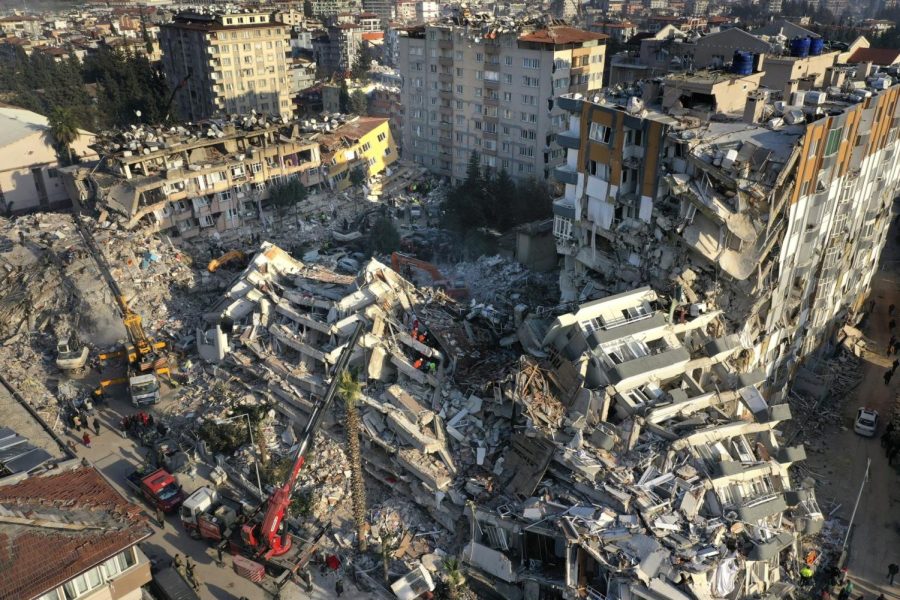ISKENDERUN, Turkey (AP) — Rescuers pulled several earthquake survivors from the shattered remnants of buildings Friday, including some who lasted more than 100 hours trapped under crushed concrete after the disaster slammed Turkey and Syria and killed more than 22,000 people.
The survivors included six relatives who huddled in a small pocket under the rubble, a teenager who drank his own urine to slake his thirst and a 4-year-old boy who was offered a jelly bean to calm him down as he was shimmied out.
Entire neighborhoods of high-rise buildings have been reduced to twisted metal, pulverized concrete and exposed wires, and the magnitude 7.8 quake has already killed more people than Japan’s Fukushima earthquake and tsunami, with many more bodies undoubtedly yet to be recovered and counted.
Four days after the earthquake hammered a sprawling border region that is home to more than 13.5 million people, relatives wept and chanted as rescuers pulled 17-year-old Adnan Muhammed Korkut from a basement in the Turkish city of Gaziantep, near the quake’s epicenter. He had been trapped for 94 hours, forced to drink his own urine to survive.
“Thank God you arrived,” he said, embracing his mother and others who leaned down to kiss and hug him as he was being loaded into an ambulance.
For one of the rescuers, identified only as Yasemin, Adnan’s survival hit home hard.
“I have a son just like you,” she told him after giving him a warm hug. “I swear to you, I have not slept for four days. … I was trying to get you out.”
A trapped woman could be heard speaking to a team trying to dig her out in video broadcast by HaberTurk television. She told her would-be rescuers that she had given up hope of being found — and prayed to be put to sleep because she was so cold. The station did not say where the operation was taking place.
The rescues Friday provided fleeting moments of joy and relief amid the misery gripping the shattered region where morgues and cemeteries are overwhelmed and bodies lie wrapped in blankets, rugs and tarps in the streets of some cities.
Temperatures remain below freezing across the large region, and many people have no shelter. The Turkish government has distributed millions of hot meals, as well as tents and blankets, but was still struggling to reach many people in need.
The U.N. refugee agency estimates as many as 5.3 million people have been left homeless in Syria. Sivanka Dhanapala, the country representative in Syria for UNHCR, told reporters Friday that the agency is focusing on providing tents, plastic sheeting, thermal blankets, sleeping mats and winter clothing.
Syrian President Bashar Assad and his wife, Asmaa, visited survivors at the Aleppo University Hospital, according to Syrian state media. It was the leader’s first public appearance in an affected area of the country since the disaster. He then visited rescuers in one of the city’s hardest-hit areas.
Aleppo has been scarred by years of heavy bombardment and shelling — much of it by the forces of Assad and his ally, Russia — and it was among the cities most devastated by the earthquake.
Also Friday, the outlawed Kurdistan Workers’ Party, or PKK, said it was declaring a cease-fire in its separatist insurgency in Turkey’s mainly Kurdish southeast, including some areas affected by the quake.
Turkey’s disaster-management agency said more than 19,300 people had been confirmed killed in the disaster so far in Turkey, with more than 77,000 injured.
More than 3,300 have been confirmed killed in Syria, bringing the total number of dead to more than 22,000. The bodies of more than 700 Some 12,000 buildings in Turkey have either collapsed or sustained serious damage, according to Turkey’s minister of environment and urban planning, Murat Kurum.


